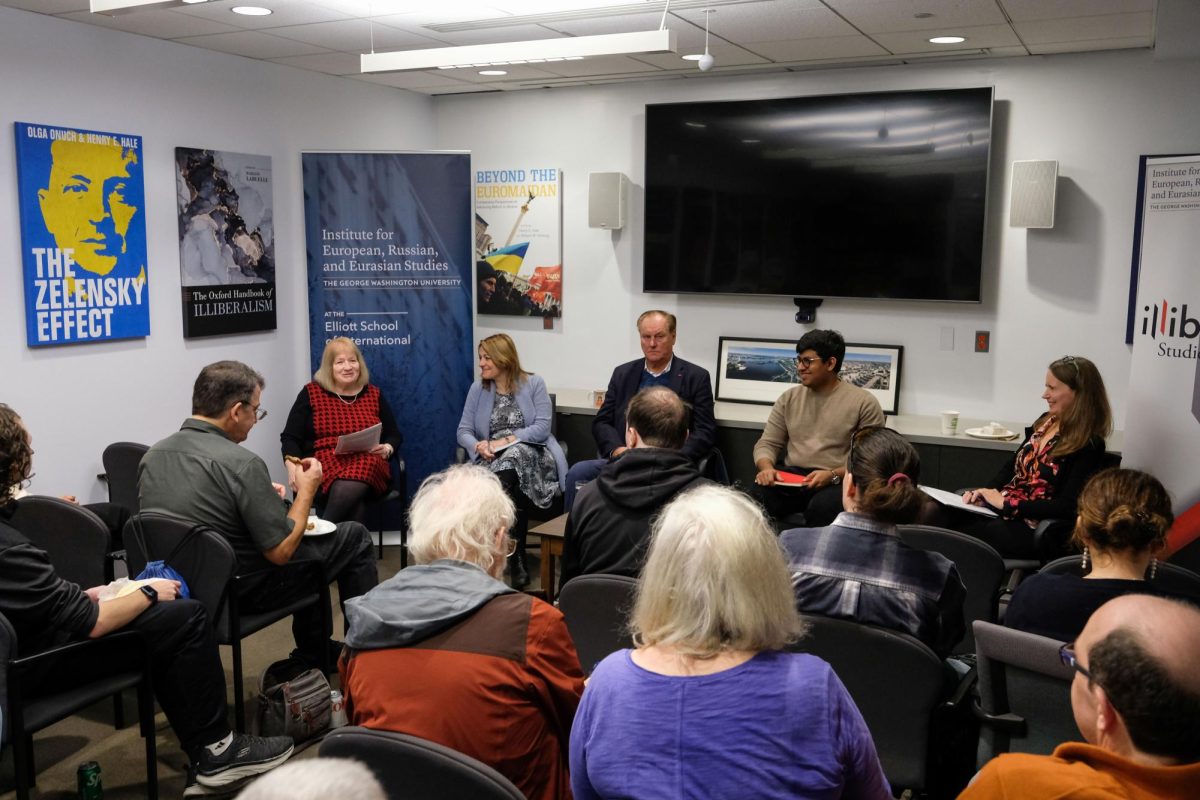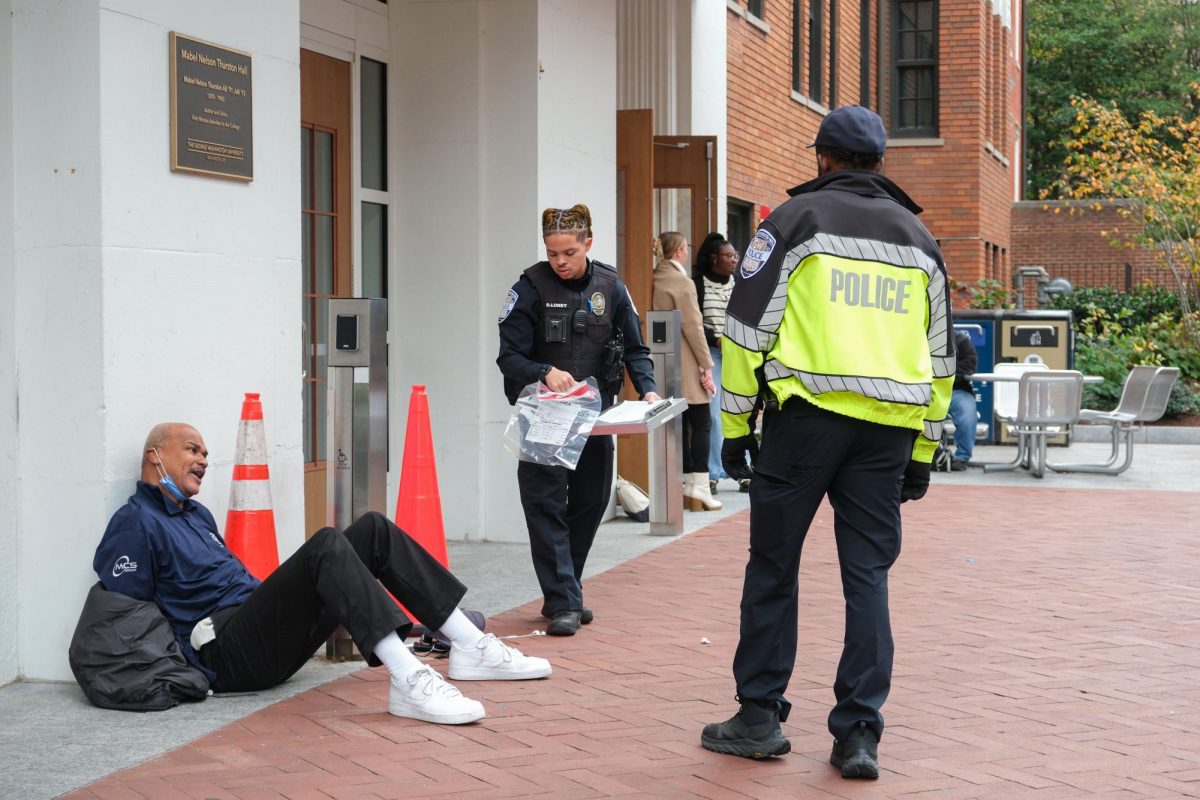Two journalists and a political science professor gathered at the Elliott School of International Affairs on Friday to discuss how President-elect Donald Trump’s second term will impact foreign relations between the United States and Europe.
Director of the Illiberalism Studies Program Marlene Laruelle moderated the panel featuring William Drozdiak, global fellow at the Wilson Center’s Global Europe Program, Idrees Kahloon, Washington bureau chief for The Economist and Kimberly Morgan, a professor of political science. The panel, hosted by the Illiberalism Studies Program and the Institute for European, Russian and Eurasian Studies, centered around how Trump’s second term could reshape globalization, immigration, international relations and the political and economic landscapes in the United States and Europe.
Laruelle first asked panelists about the rising success of far-right parties in Europe and the United States.
Drozdiak said globalization has created a “divide” between those who have financially benefited from globalization and those who have felt the “pain” of globalization. He said the growing disparity is a result of the increasing globalization over the last few decades.
“I think there’s been steadily the erosion of public support in the idea of globalization, the global perspective, which had been promised to that this was inevitable, that Europe, as the world commercial power, would actually benefit from globalization and enhanced trade and crossing of borders,” Drozdiak said.
Drozdiak said the Midwest has received fewer benefits from globalization, noting that many people lost their jobs due to labor competition with China. He argued that discontent with globalization in the United States has fueled the rise of far-right movements. He said with the Republican Party poised to gain control of all branches of government, if improvements are not made for the working and middle classes, he would not be surprised to see the political pendulum shift away from the far right.
Laruelle then asked the panelists about immigration in both the United States and Europe.
Morgan took the floor and said the immigration debates in the United States and Europe have shifted from cultural integration concerns to managing surging asylum seekers due to the large number of people trying to enter the country. She said the surge has fueled backlash in places like the Netherlands and New York City where she said the housing crisis and resource competition are often correlated to the surge of migrants.
“I do think immigration is often a stand-in for other issues, whether they are economic or cultural, you know, fears about national identity,” Morgan said. “So it can be a symbolic issue. I do think there are more concrete, material issues that have contributed to the politicization.”
Morgan said the European Union is implementing policies to expedite asylum claims, aiming to quickly approve or reject applications. While in the United States, she said Trump plans to continue Biden’s border shutdown policies.
The discussion moved to tariffs — taxes imposed by a government on imported or exported goods — which was a key focus in the 2024 election.
Morgan said the Trump administration faced a conflict between populist ideas pushing for high tariffs and concerns from businesses, especially agriculture, about the negative impact on the economy. She said this tension indicates the administration needs to balance populist goals with the influence of business interests in Congress, suggesting future tariff policies would be more cautious.
“People are used to cheap consumption. That’s why they were so angry about inflation. People got very used to goods beingand inexpensive in this country. It’s because of our trading relationships, and especially with China,” Morgan said.





